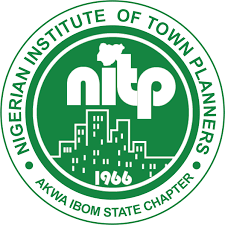Paragraph 1: The Unfulfilled Promise of Urban Planning in Nigeria
The Nigerian Institute of Town Planners (NITP) has voiced its deep concern over the Nigerian government’s persistent failure to establish the National Urban and Regional Planning Commission, a critical body mandated by the Nigerian Urban and Regional Planning Law of 1992. This inaction, spanning over three decades, represents a significant impediment to effective urban development and contributes to a range of urban challenges, including recurrent flooding and inadequate infrastructure. The commission’s absence highlights a systemic disregard for planned urban development, jeopardizing the well-being and prosperity of Nigerian citizens. The NITP’s plea for the implementation of this vital institution underscores the urgent need for a paradigm shift in urban planning and management in the country.
Paragraph 2: The 1992 Law: A Blueprint for Sustainable Urban Development
The 1992 law, enacted under a military government, provided a comprehensive framework for establishing crucial planning institutions, including the National Urban and Regional Planning Commission and the Federal Capital Urban and Regional Planning Board. These bodies were designed to guide and regulate urban development at national and regional levels, ensuring sustainable growth and efficient resource management. However, the continued non-existence of these institutions has left a significant gap in the nation’s urban development framework. The absence of a National Physical Development Plan and a National Drainage Plan, which would have fallen under the purview of the commission, has exposed the country to recurrent flooding, highlighting the severe consequences of neglecting strategic urban planning.
Paragraph 3: The Disconnect Between Planning Professionals and Decision-Makers
The NITP has identified a critical disconnect between planning professionals and government decision-makers as a key factor contributing to the current urban planning challenges. Decisions regarding urban development are often made without the input of qualified town planners, undermining the effectiveness and sustainability of urban projects. This lack of consultation and collaboration perpetuates a cycle of haphazard development, leading to inefficient land use, inadequate infrastructure, and environmental degradation. The NITP’s consistent advocacy for greater involvement of planning professionals in decision-making processes underscores the importance of expert guidance in shaping sustainable urban environments.
Paragraph 4: The Importance of Enforcing the 1992 Law
The enforcement of the 1992 law and its subsequent 2004 amendment is paramount to addressing the current urban planning deficit in Nigeria. This legal framework provides the necessary tools and mechanisms for effective urban development, including the establishment of planning institutions, the development of comprehensive plans, and the regulation of urban growth. The NITP argues that the consistent application of the law would not only mitigate current challenges but also pave the way for the development of world-class cities comparable to London and other advanced urban centers. The implementation of the law represents a crucial step towards achieving sustainable urban development and enhancing the quality of life for Nigerian citizens.
Paragraph 5: Ethical Considerations and Collaborative Efforts
The call for improved urban planning extends beyond technical and legal aspects to encompass ethical considerations and collaborative efforts. Experts emphasize the importance of grounding urban planning in principles of fairness, human dignity, and environmental stewardship. This ethical framework recognizes human beings as caretakers of the natural environment and promotes responsible land use practices. Furthermore, collaborative initiatives between stakeholders such as the Real Estate Developers Association of Nigeria (REDAN), the NITP, and other relevant institutions are essential for achieving sustainable housing development and ensuring that every Nigerian has access to dignified housing. These partnerships foster a holistic approach to urban development, balancing economic growth with social equity and environmental sustainability.
Paragraph 6: Learning from Global Best Practices and Addressing Leadership Disconnect
Nigeria’s urban planning challenges are further compounded by a lack of political will and a failure to learn from successful urban development models in other countries. Despite witnessing well-planned cities abroad, there is a persistent disconnect between observation and implementation back home. This leadership disconnect hinders progress and perpetuates a cycle of inadequate planning and development. Addressing this gap requires a commitment from leaders at all levels to prioritize urban planning, invest in the necessary resources, and foster a culture of learning and adaptation. By embracing global best practices and fostering strong leadership, Nigeria can unlock its urban development potential and create sustainable, thriving cities for its citizens.














